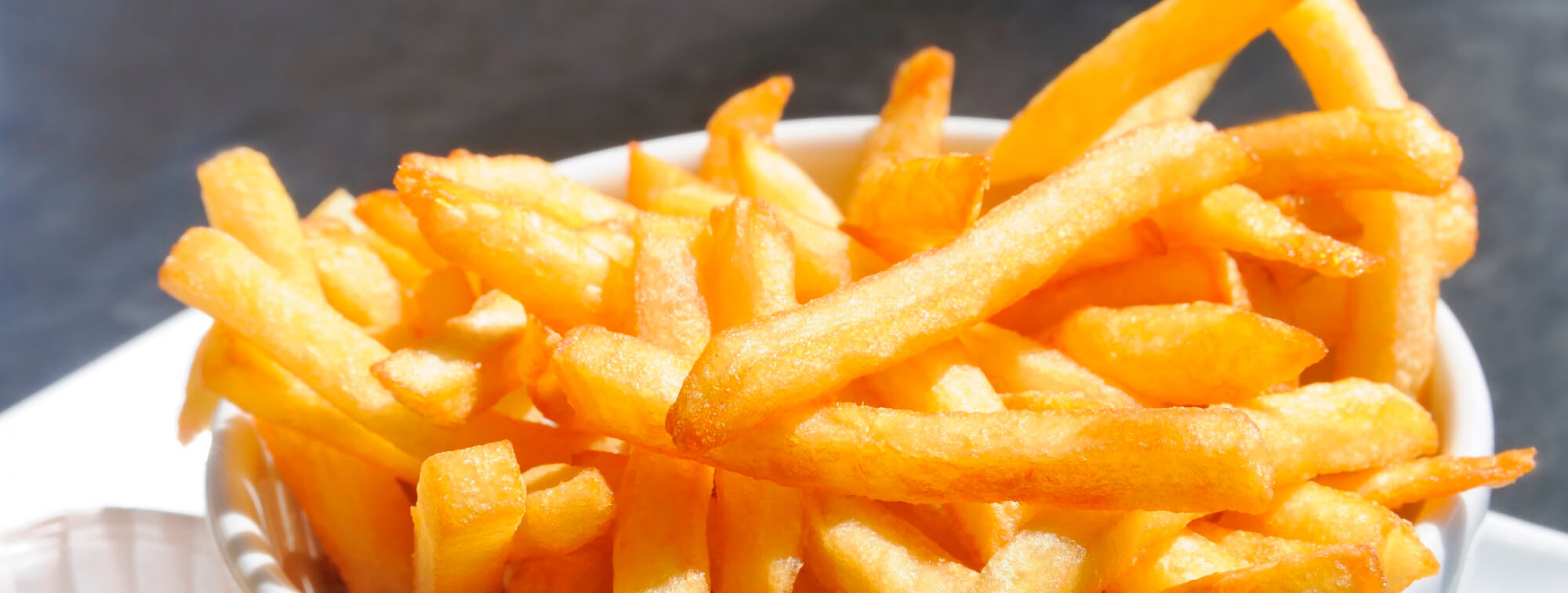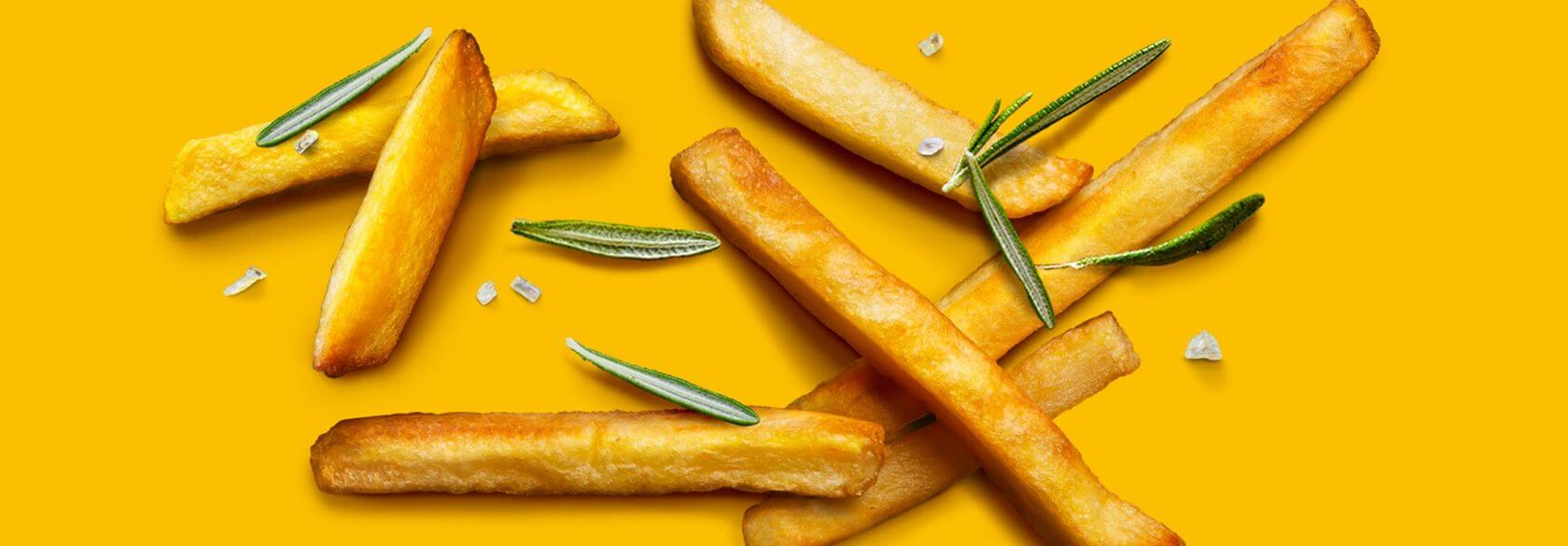Good frying practices & Quality control of oils
Good frying practices
-
Fill baskets only half full:
filling the basket completely will result in greasy, soggy food. Do not exceed manufacturer's minmum recommended load; 1:10 (1liter of frying oil: 100g of fried food). Load baskets away from the fryer.
-
Skim frequently:
For best results, skim off floating food particles as frequently as possible.
-
Allow foods to drain:
When lifting fryer baskets out of the oil, allow food to drain before emptying!
-
Keep the fryer filled:
Frying oil should be kept at the fill line marked on the inside of the fryer.

-
Filter frequently:
Click here for a complete description (link to filtering the oil).
-
Season away from fryer:
Salt and seasoning contain small quantities of natural metallic contaminants. When introduced into the oil, they speed up the rate of oil "breakdown", which causes foaming, dark colour and off flavours.
-
The golden rules of frying
- Quality oils produce quality fried foods.
- Good frying practices produce good quality fried foods.
- Buying quality oil is as important as buying quality food. Remember, the oil is both a cooking medium and an ingredient.
Quality control of oils
Good frying oil will enhance the qualities of properly prepared foods.
-
Frozen food:
It is always best to follow the manufacturer's directions as precisely as possible when preparing frozen foods. Most frozen foods today are processed so they may be taken directly from the freezer to the fryer without thawing. Care should be exercised when purchasing frozen foods to ensure that they have not been exposed to partial thawing and refreezing. Thawing and refreezing causes frozen foods to lose some of their natural juices, and will also allow more of these juices to be lost in the fryer. This additional moisture will speed up oil breakdown. Moreover, never refreeze thawed foods as this can be detrimental to your health.
-
Meats, seafood:
Whenever possible, trim excess fatty tissues. Reducing the amount of these unprocessed, unstable fats, which render out during frying, will help increase the performance of your oil.
-
Breaded foods:
Frozen foods are usually pre-breaded, but if you prepare your own breading, remove excess breading before frying. This will reduce the amount of contamination in the fryer. The flour in breading, when heated at high temperature over a longer period of time, will burn. As an unwanted result, the oil and the finished food will have a sharp, bitter, unpleasant, and burnt flavour. Very fine flour particles blacken easily, darken the oil, and are difficult to remove during filtration.
-
Excessive moisture:
Too much water can result in inferior fried food with high oil absorption and poor texture. The moisture should be drained or wiped off from these foods by placing them on a wire rack or blotting them before frying.
